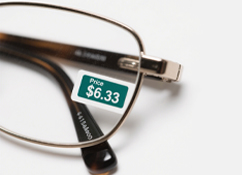Will Welding Light Blind You?
Will Welding Light Blind You?
We’ve all seen welders in face shields or goggles. Ever wonder: Could a quick glance at that bright spark blind you?
Eye doctors weigh in.
UV rays are the problem
Welding creates intense, steady sparks—arc light—that includes infrared, visible light, and invisible UV rays. Those UV rays are the real threat.
Your eye’s surface (cornea, the clear "black part," and conjunctiva, the "white part") soaks up UV rays. This damages cells, making them swell and die.
Within hours, symptoms go from a scratchy feeling, redness, and tearing to intense stinging, light sensitivity, and even being unable to open your eyes or sleep.
It’s called "photokeratitis" (or "snow blindness")
Unprotected welding can cause "photokeratitis," but it takes long, strong UV exposure—not just a quick look. Sunlight’s UV is too weak to do this, so passersby are fine if they don’t stare.
It’s also called "snow blindness" because long hours in high-reflection areas (snow, water) can cause it too—hence why climbers wear goggles.
Will it make you blind?
Welders often rush to the ER in pain, asking, "Am I going blind?"
Doctors usually say: "No, unless there’s an infection or your cornea heals poorly."
The cornea and conjunctiva heal fast—most people recover in days. Temporary blurriness from swelling or tearing is normal, so don’t panic.
How it’s treated
For severe pain, doctors might use eye numbing drops—they work fast but slow healing, so don’t overuse them.
Oral painkillers (if safe for you) are better, even if slower.
Drops to help cells heal speed recovery. And since welders often work in dirty areas, antibiotic drops can prevent infections—don’t rub your eyes (damaged corneas get infected easily).
Don’t skip the doctor
Mild pain doesn’t mean you’re fine. Welding can also cause burns from infrared light or get debris in your eye. Always get checked.
The biggest tip: Protect your eyes
No one wants to suffer through that pain, scared of going blind.
Wear goggles. Whether you’re welding, watching, fixing UV lights, or hiking in high-UV spots (mountains, snow)—goggles are a must.
An eye doctor’s best advice.











